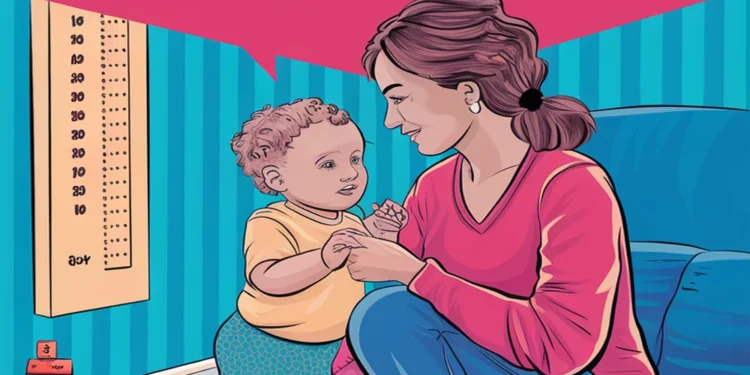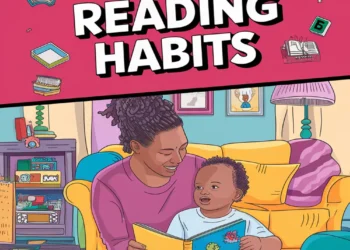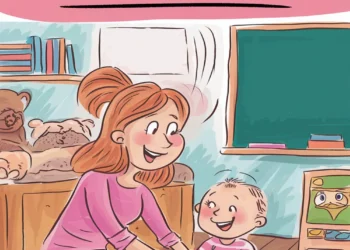Key milestones that matter in toddler years include emotional and social development, language and communication skills, cognitive growth, and building independence. During this period, your child learns to express feelings, develop friendships, and communicate effectively. They also explore independence through self-help skills, fostering resilience and confidence. Encouraging creativity and problem-solving enhances their cognitive abilities. Supporting their identity and understanding diversity is essential too. There’s so much more to uncover about how these milestones shape their future.
Understanding Emotional Development in Toddlers
As you navigate the early years of your toddler’s life, understanding their emotional development can feel both rewarding and challenging. Toddlers experience a whirlwind of emotions, from joy to frustration, often expressing themselves through behaviors like tantrums and clinginess. At this age, they’re beginning to recognize their feelings and those of others, which is vital for building empathy. You might notice them seeking comfort from you during distress, signaling their need for a secure emotional base. Encouraging them to label their emotions—using words like “happy,” “sad,” or “angry”—can foster emotional intelligence. It’s important to validate their feelings rather than dismiss them. This approach helps your toddler navigate emotions more effectively, promoting resilience as they grow.
The Importance of Social Skills
Building on your toddler’s emotional development, fostering social skills is equally important during these formative years. These skills form the foundation for how your child interacts with others, forming friendships and maneuvering social situations. Research shows that toddlers learn social cues through play, observation, and direct interaction. Encouraging shared playtime helps them learn to take turns, share, and express themselves verbally. Simple activities like group games can enhance their ability to communicate and resolve conflicts, laying groundwork for healthy relationships. It’s essential to model positive social behavior too—show them how to greet others, empathize, and show appreciation. The more you engage and support their social exploration, the stronger their interpersonal skills will become, setting them up for success in future interactions.
Cognitive Growth and Learning
Cognitive growth during the toddler years is a remarkable journey where curiosity fuels learning. Your little one is exploring their world, asking questions, and developing problem-solving skills. At this stage, toddlers engage in imaginative play, which is essential for their cognitive development. They start to understand cause and effect as they experiment with different scenarios. Simple activities like stacking blocks or matching shapes can enhance critical thinking skills. Encouraging exploration helps them develop reasoning abilities. Research shows that a rich learning environment, filled with diverse experiences, greatly impacts a toddler’s cognitive abilities. So, provide plenty of opportunities for hands-on learning and exploration—your child’s cognitive milestones will flourish as they interact with their surroundings.
Language and Communication Milestones
Language development during the toddler years marks a crucial phase in your child’s growth, filled with exciting milestones. During this time, you’ll notice your little one beginning to understand basic words and phrases. By age 2, many toddlers can say around 50 words and start combining them into simple sentences. They’ll express needs and emotions, which fosters their ability to communicate effectively.
Encouraging conversations, reading aloud, and singing songs are great ways to support this development. You’ll see them mimic sounds and words, revealing their enthusiasm to learn. Remember, each child develops at their own pace, so celebrate their unique progress. If you have concerns about speech development, consulting a pediatrician can provide guidance and reassurance.
Recommended Items
Explore these delightful recommendations to support your toddler’s growth and family fun!
Building Independence and Self-Help Skills
During the toddler years, your child begins to explore independence and self-help skills, which are essential for their overall development. This is the time when they’ll want to dress themselves, feed themselves, and start using the bathroom. Encouraging these activities helps build their confidence and autonomy. You can support this process by providing simple choices, like letting them select their clothes or snacks. It’s normal for them to struggle initially, but patience is key. Research shows that allowing toddlers to practice these skills fosters resilience and problem-solving abilities. Remember, each small success contributes to their sense of competence. Celebrate their efforts, and don’t rush them—every step they take toward independence is a milestone worth acknowledging.
Action Steps for Toddler Milestones
The Role of Play in Development
While you might think of play as just a way for toddlers to have fun, it actually serves an essential role in their development. Through play, your child explores their environment, builds motor skills, and fosters creativity. Engaging in imaginative play helps them learn to navigate social situations, developing important communication skills and empathy as they interact with peers. Research shows that play enhances cognitive abilities, allowing toddlers to solve problems and think critically. Activities like building with blocks or role-playing can greatly impact their understanding of relationships and the world. By providing a safe space for play, you’re not just entertaining them; you’re also nurturing their growth and laying a strong foundation for emotional and intellectual development.
Managing Tantrums and Emotional Regulation
Play serves as a backdrop for toddlers to express their emotions, which can sometimes lead to tantrums. Understanding that tantrums are a normal response to overwhelming feelings can help you manage these outbursts effectively. When your child feels frustrated, tired, or hungry, validate their emotions by acknowledging their feelings with phrases like, “I see you’re upset.” This builds emotional awareness. Redirecting attention to a calming activity, like reading a book or engaging in deep breathing, can help them regain control. Consistency is key; establish routines that provide security. Ultimately, model emotional regulation yourself, showing how to handle frustrations calmly. With patience and understanding, you can create a safe space for your child to learn how to process emotions positively.
Recognizing Friendship and Peer Interactions
As toddlers interact with their peers, they begin to recognize the significance of friendship and social connections. During this stage, you’ll notice your child showing excitement when playing with others, indicating a budding understanding of companionship. They’ll face challenges, like sharing or negotiating playtime, which are crucial for developing social skills.
You might see them:
- Light up with joy at seeing a friend.
- Comfort a pal in distress.
- Mimic a friend’s actions or words.
- Express frustration over a lost toy during playtime.
These moments are essential because they help establish empathy and cooperation. Encouraging these interactions supports their emotional growth, paving the way for healthier relationships throughout their lives.
Enhancing Problem-Solving Skills
Building on your child’s growing understanding of friendship and social interactions, enhancing their problem-solving skills becomes an important focus during these formative years. Problem-solving helps toddlers navigate challenges, develop resilience, and improve cognitive abilities. Engaging in activities that encourage exploration and critical thinking will support this growth.
| Activity | Benefit |
|---|---|
| Puzzle play | Develops spatial reasoning |
| Collaborative games | Fosters teamwork and negotiation |
| Real-life scenarios | Enhances critical thinking |
| Open-ended questions | Encourages independent thought |
| Storytelling | Boosts logical reasoning |
Encouraging Creativity and Imagination
While nurturing a toddler’s creativity and imagination may seem informal, it’s essential for their overall development. Engaging their imaginative skills fosters cognitive growth, problem-solving, and emotional intelligence. You can support this journey through simple activities that spark their inner artist.
- Encourage spontaneous play with diverse materials.
- Provide open-ended questions to broaden their thinking.
- Allow them to express emotions through art or storytelling.
- Celebrate their unique creations, no matter how simple.
Fostering a Growth Mindset
Nurturing creativity is just one part of helping toddlers thrive; fostering a growth mindset is equally important. By encouraging them to embrace challenges, you’re teaching essential life skills. Let them know it’s okay to make mistakes; this helps them see setbacks as opportunities to learn. Use phrases like, “You’re trying hard!” and “I love how you solved that problem!” to reinforce their effort over innate talent. Research shows that children who develop a growth mindset are more resilient and adaptable. Share stories of perseverance or engage in activities that require problem-solving. Instilling this mindset early not only boosts their confidence now but also prepares them for future obstacles, fostering lifelong learners who embrace challenges with enthusiasm.
Supporting Gender Identity and Self-Concept
As children start to explore their identity, supporting their understanding of gender can be pivotal in shaping a positive self-concept. It’s important to create an environment where they feel free to express themselves. Acknowledging and validating their feelings fosters confidence and acceptance. Here are some ways you can support their journey:
- Encourage open conversations about feelings and identity.
- Provide diverse books and toys that represent all genders.
- Model acceptance and respect for individual choices.
- Celebrate their uniqueness, reminding them that it’s okay to be different.
Your support not only helps them understand gender but also cultivates resilience and self-esteem. When children feel accepted for who they are, they develop a strong foundation for healthy relationships and self-worth.













